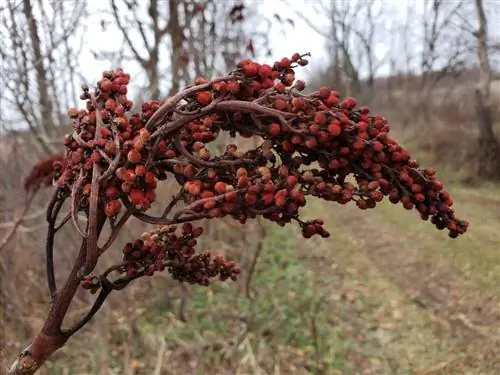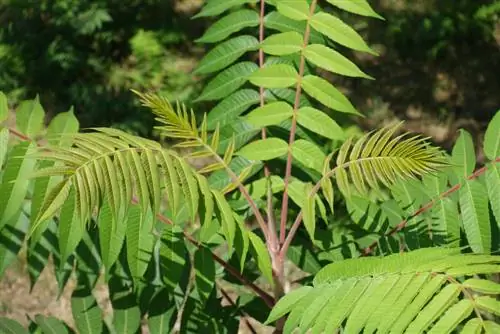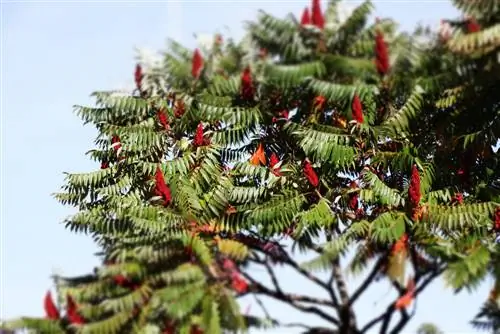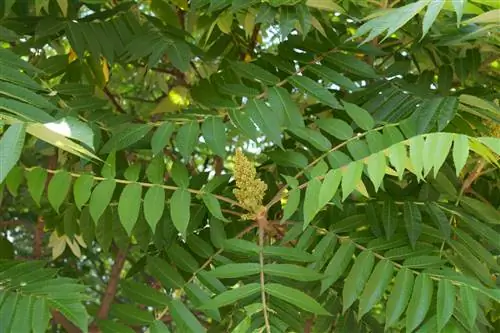- Author admin leonars@hobbygardeners.com.
- Public 2023-12-16 16:46.
- Last modified 2025-01-23 11:21.
Vinegar trees are still considered poisonous, although the fruits are suitable for consumption. But the widespread ornamental plant differs from other vinegar tree plants in terms of its ingredients. A toxic effect only occurs in rare cases.
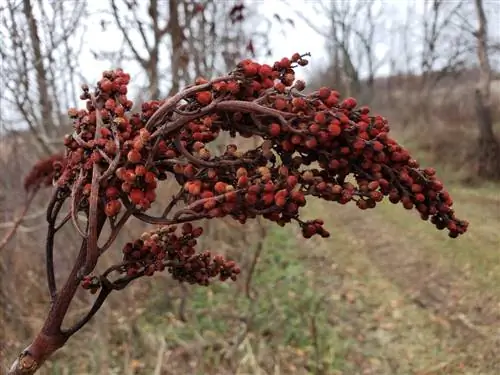
Is the vinegar tree poisonous?
The vinegar tree is slightly poisonous due to its tannins and fruit acids, although symptoms of poisoning are rare and usually occur after large consumption or long-term contact. In animals, more severe symptoms such as inflammation, colic and diarrhea may be observed.
Ingredients and toxic effects
Vinegar trees evoke associations with poisoning that are unfounded. This confusion stems from the fact that other species in the vinegar tree genus cause toxic effects. Poison sumac contains urushiols, which cause severe allergic reactions when they come into contact with the skin.
No urushiols were detected in the vinegar tree. In addition to tannins and ellagic acid, the plant parts of the vinegar trees contain an acidic cell sap. Here the toxicity, which can be classified as mild, is due to the tannins and fruit acids. The dose makes the poison, because symptoms of poisoning due to the tannins only occur when large quantities are consumed or over a long period of time. If there is contact with the milky plant sap, skin irritation can occur.
Possible consequences after consumption:
- Inflammation of the gastric mucosa
- Liver Damage
- Stomach and intestinal pain
- Nausea, headaches and nausea
Toxicity to animals
In animals, the plant parts cause more intense symptoms of poisoning after consumption. Hamsters and guinea pigs react with stomach and intestinal problems, while the ingredients cause colic and diarrhea in horses. The milky sap leads to inflammation of the skin or mucous membranes in many animals.
Usage
The red fruit pods of the vinegar tree are used to make refreshing lemonades that are rich in vitamin C. They are used to make vinegar, which led to the name vinegar tree. In Turkey, the dried seeds are used as a spice, which gives various dishes a sour taste.

